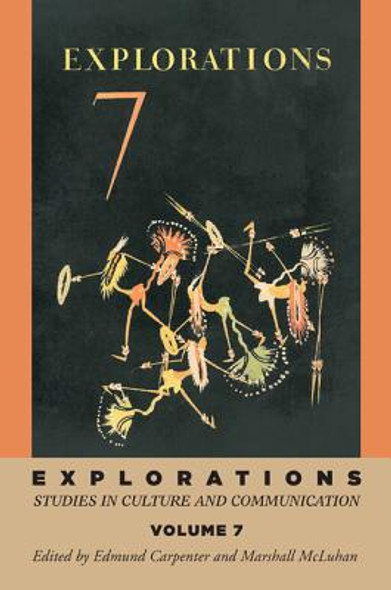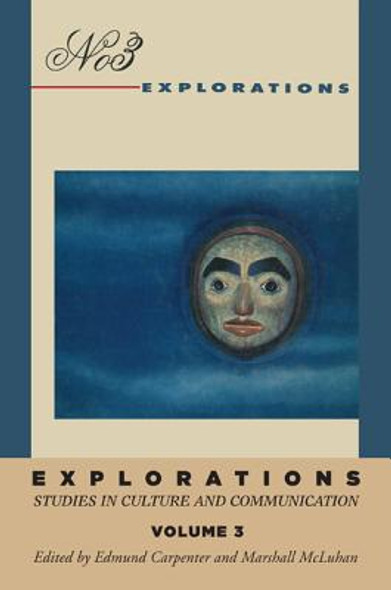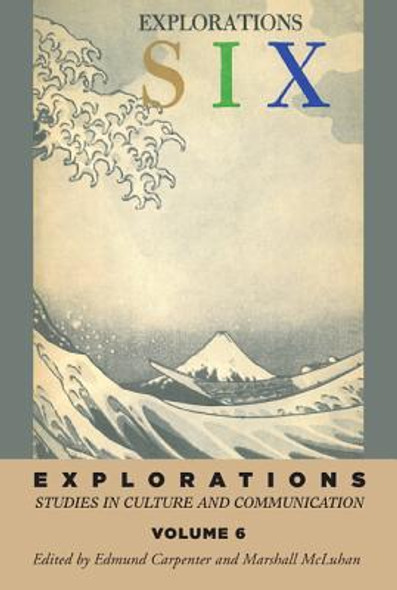Description
Explorations: Studies in Culture and Communication, principally edited by Edmund Carpenter and Marshall McLuhan, was the first postwar journal to engage directly with the new ""grammars"" of mid-century new media of communication. Launched in Toronto in 1953, at the very moment that television made its national debut in Canada, Explorations presented a mosaic of approaches to contemporary media culture and became the site in which McLuhan and Carpenter first formulated their most striking insights about new media in the electric age. The extraordinary breadth of contributions to Explorations from leading thinkers across the arts, humanities, social and natural sciences makes this journal a founding publication in the now burgeoning field of media studies. Originally funded by a Ford Foundation grant, the eight coedited issues of Explorations ran from 1953 to 1957 and are reprinted here for the first time in sixty years. For a listing of all articles in this series, refer to the Summaries at the end of the series foreword. ""Explorations was the crucible in which McLuhan and Carpenter created media studies. Combining Carpenter's anthropological interests with McLuhan's knowledge of rhetoric, they produced a unique platform for understanding biomediation. These eight issues of Explorations will stagger the reader with their compelling insights and with their range of contributors, from Jorge Luis Borges to Jaqueline Tyrwhitt."" --Richard Cavell, University of British Columbia; author of McLuhan in Space: A Cultural Geography (2002) and Remediating McLuhan (forthcoming) ""Under the editorship of Marshall McLuhan and Edmund Carpenter, Explorations was a unique interdisciplinary journal bringing together key luminaries from early Canadian media studies. This republication is a key milestone in our understanding of the roots of communications theory."" --Will Straw, Director, McGill Institute for the Study of Canada Marshall McLuhan (1911-80) was a pioneer Canadian theorist and educator in the fields of communication and media studies. He taught at the University of Toronto from 1946 to 1979 and became popular for his aphorism ""the medium is the message,"" which summarized his view of the media's potent influence on shaping culture and styles of thinking. His major writings include The Gutenberg Galaxy (1962), Understanding Media (1964), and The Medium Is the Message (1967). Edmund S. Carpenter (1922-2011) was an archaeologist, visual anthropologist, media theorist, filmmaker, teacher, author, and curator. On faculty with the University of Toronto, he conducted fieldwork in the Canadian Arctic in the early 1950s. He subsequently founded an anthropology and film program at California State University, Northridge, and studied the impact of modern media on tribes in Papua, New Guinea. Carpenter later spent a decade organizing the research archive of Carl Schuster, in Basel, Switzerland, publishing the twelve-volume Social Symbolism in Ancient & Tribal Art (1986-88).
Details
Author: |
E. S. Carpenter |
Editor: |
W. T. Easterbrook |
ISBN 10: |
1620324318 |
Pages: |
174 |
Publisher: |
Wipf & Stock Publishers |
Publication Date: |
September 29, 2016 |
Binding: |
Paperback |
Weight: |
0.53lbs |






